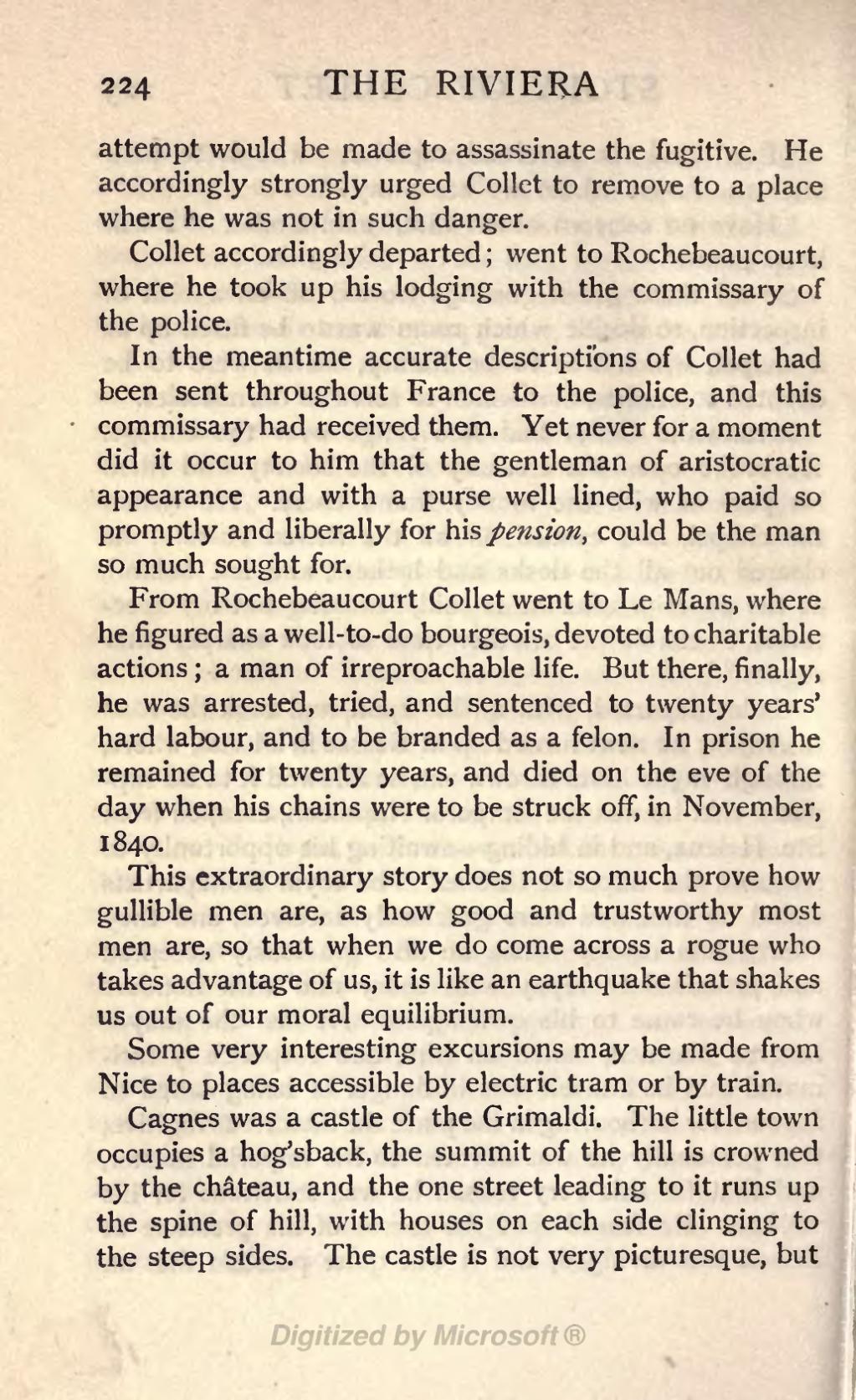attempt would be made to assassinate the fugitive. He accordingly strongly urged Collet to remove to a place where he was not in such danger.
Collet accordingly departed; went to Rochebeaucourt, where he took up his lodging with the commissary of the police.
In the meantime accurate descriptions of Collet had been sent throughout France to the police, and this commissary had received them. Yet never for a moment did it occur to him that the gentleman of aristocratic appearance and with a purse well lined, who paid so promptly and liberally for his pension, could be the man so much sought for.
From Rochebeaucourt Collet went to Le Mans, where he figured as a well-to-do bourgeois, devoted to charitable actions; a man of irreproachable life. But there, finally, he was arrested, tried, and sentenced to twenty years' hard labour, and to be branded as a felon. In prison he remained for twenty years, and died on the eve of the day when his chains were to be struck off, in November, 1840.
This extraordinary story does not so much prove how gullible men are, as how good and trustworthy most men are, so that when we do come across a rogue who takes advantage of us, it is like an earthquake that shakes us out of our moral equilibrium.
Some very interesting excursions may be made from Nice to places accessible by electric tram or by train. Cagnes was a castle of the Grimaldi. The little town occupies a hog'sback, the summit of the hill is crowned by the chateau, and the one street leading to it runs up the spine of hill, with houses on each side clinging to the steep sides. The castle is not very picturesque, but
